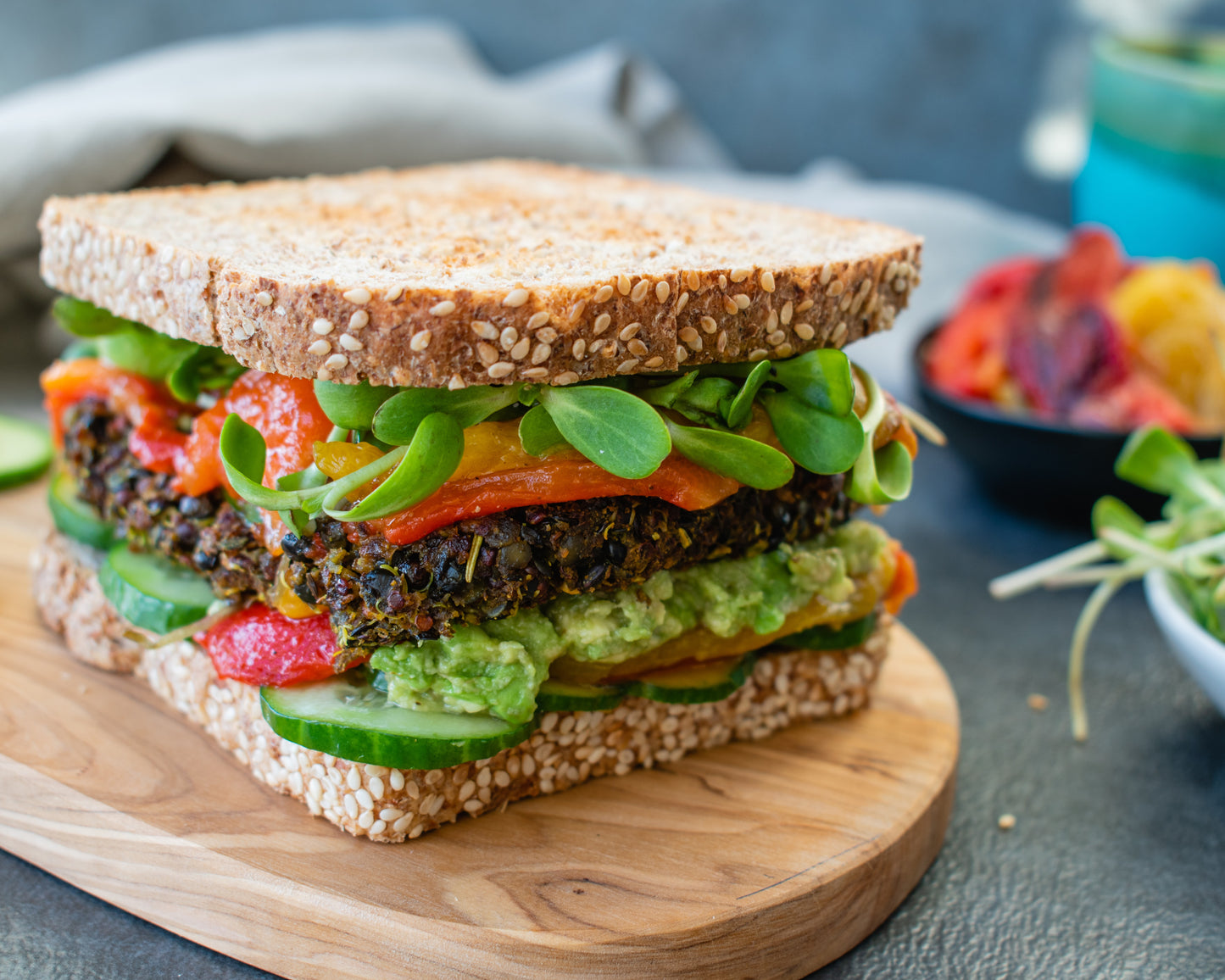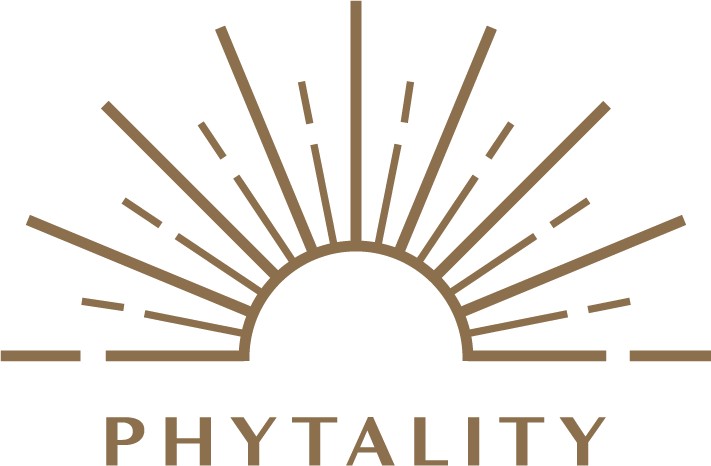
Table of Contents
- Nutrients of Concern for Vegans
- What Should a Vegan Eat Daily to Avoid the need to Supplement
- Can a vegan diet provide all the necessary nutrients?
- What are the most Common Vegan Nutritional Deficiencies?
- What factors impact nutrient absorption for vegans?
- Considerations for vegans who may need supplements
- What are the best Vegan Supplements for Mood
- Do Vegans Need to Supplement: Our Verdict + Top Picks
While a well-planned vegan diet can provide all the necessary nutrients for optimal health, we've all seen those pale, deficient members of the vegan community who clearly aren't getting what they ned.
In this article, we will explore the nutrients that vegans should pay particular attention to and the factors that may impact absorption.
We will also discuss particular demographics that might benefit from vegan supplements, how to choose the right ones and their role in supporting mood.
By the end of this article, you will have a better understanding of whether or not you may need to consider supplements as a vegan and how to do so in a safe and effective way.
Nutrients of Concern for Vegans
Protein
While getting enough protein on a vegan diet is possible, it can be more challenging to get enough of all the essential amino acids. Good plant-based protein sources include legumes (e.g. lentils, chickpeas, black beans), tofu, tempeh, seitan, nuts, and seeds.
Vitamin B12
Vitamin B12 is primarily found in animal products, so vegans may need to supplement or eat fortified foods to get enough. A deficiency in B12 can lead to anaemia, nervous system damage, and other health problems.
Iron
Iron is essential for transporting oxygen throughout the body, and it is found in plant-based sources like spinach, beans, and fortified cereals. However, the body does not absorb non-heme iron (the type found in plant-based foods) as readily as heme iron (the kind found in animal products), so vegans may need to consume more iron to meet their needs.
Calcium
Calcium is vital for strong bones and teeth, and it is found in plant-based sources like kale, bok choy, and fortified plant milks. However, like iron, the body may not absorb calcium from plant-based sources as easily as from animal sources.
Omega-3 fatty acids
Omega-3 fatty acids are essential for brain function and heart health, and they are found in plant-based sources like flaxseeds, chia seeds, and walnuts. However, the type of omega-3s found in these sources (ALA) may not be as readily converted to the more beneficial forms (EPA and DHA) as the omega-3s found in fish and seafood. As such we recommend a vegan omega such as Phytality's Clean Omega.
What Should a Vegan Eat Daily to Avoid the need to Supplement
Breakfast:
- Tofu scramble with veggies: protein (16g), healthy fats, iron, calcium, vitamin K, vitamin A, vitamin C
- Whole grain toast with avocado: healthy fats, fiber, potassium, vitamin K, vitamin C
Snack:
- Apple slices with almond butter: protein (3g), healthy fats, fiber, vitamin C, vitamin E
Lunch:
- Chickpea salad with veggies and tahini dressing: protein (15g), healthy fats, fiber, iron, magnesium, potassium, vitamin C
- Whole grain crackers: healthy carbs, fiber, iron
Snack:
- Manuka honey Smoothie with banana, spinach, and peanut butter: protein (8g), healthy fats, fiber, potassium, magnesium, vitamin C, vitamin E
Dinner:
- Lentil and vegetable stir-fry: protein (20g), healthy carbs, fiber, iron, potassium, magnesium, vitamin C
- Brown rice: healthy carbs, fiber, magnesium
Can a vegan diet provide all the necessary nutrients?
A well-planned vegan diet can provide all the necessary nutrients for optimal health. However, you need to work hard at it.
To ensure you are meeting your nutrient needs, you should aim to include the following in your diet:
- A diversity of fruit and veg: These are rich in vitamins, minerals, and fibre, and should make up a large portion of your diet.
- Whole organic grains: These provide complex carbohydrates and fiber, and can be a good source of iron, zinc, and B vitamins.
- Well soaked Legumes: These are a great source of protein, iron, zinc, and fiber. Examples include lentils, chickpeas, and black beans. Pre soaking before cooking helps reduce anti nutrients such as phytic acid.
- Nuts and seeds: These are a good source of healthy fats, protein, and minerals like calcium, magnesium, and zinc.
- Fortified foods: Some plant-based foods, such as plant milks, breakfast cereals, and tofu, are fortified with calcium, vitamin D, and vitamin B12.
What are the most Common Vegan Nutritional Deficiencies?
| Nutrient | Physical symptoms of deficiency | Suggested solution |
|---|---|---|
| Vitamin B12 | Anemia, fatigue, nerve damage, depression | Consume fortified foods (e.g. plant-based milks, breakfast cereals) or take a B12 supplement |
| Omega-3 fatty acids | Poor memory and concentration, dry skin, depression | Consume plant-based sources of omega-3s (e.g. flaxseeds, chia seeds, walnuts) or take an algae-based omega-3 supplement such as Clean Omega |
| Iron | Anemia, fatigue, weakness | Consume plant-based sources of iron (e.g. beans, spinach, fortified cereals), and consume vitamin C-rich foods at the same time to enhance iron absorption |
| Calcium | Weak bones, tooth decay, muscle cramps | Consume plant-based sources of calcium (e.g. kale, bok choy, fortified plant milks), and get enough vitamin D through sun exposure or fortified foods |
| Vitamin D | Weak bones, muscle weakness, low immunity | Get enough sun exposure or consume plant-based sources of vitamin D (e.g. fortified plant milks, mushrooms), or take a vitamin D supplement |
| Zinc | Weak immune system, slow wound healing, hair loss | Consume plant-based sources of zinc (e.g. legumes, nuts, seeds) or take a zinc supplement |
What factors impact nutrient absorption for vegans?
While a well-planned vegan diet can provide all the necessary nutrients for optimal health, some factors may impact nutrient absorption for vegans. Here are some factors to consider:
- Gut health: The health of your gut can impact nutrient absorption, and certain gut conditions (such as inflammatory bowel disease) may make it harder to absorb nutrients. Additionally, a lack of fibre in the diet may lead to constipation and other gut issues that can impact nutrient absorption.
- Medications that may interfere with nutrient absorption: Some medicines, such as proton pump inhibitors and metformin, can interfere with the absorption of certain nutrients like vitamin B12 and calcium.
- Age and gender: As we age, our bodies may become less efficient at absorbing certain nutrients. Additionally, women who experience heavy menstrual bleeding may be at a higher risk of iron deficiency.
- Food processing and cooking methods: The processing and cooking of plant-based foods can impact nutrient content and absorption. For example, overcooking vegetables can lead to nutrient loss, and some cooking methods (such as boiling) can decrease the bioavailability of certain nutrients.
- Nutrient interactions: The interaction of different nutrients can impact their absorption and utilization in the body. For example, simultaneously consuming vitamin C-rich foods may improve iron absorption.
Considerations for vegans who may need supplements
Here are some considerations for vegans who may need supplements:
- Higher Risk groups: Some groups of vegans may be at higher risk of nutrient deficiencies and may benefit from supplements, including pregnant or breastfeeding women, athletes, and individuals with certain health conditions.
- Fortified foods: Fortified plant-based foods, such as plant milks, breakfast cereals, and tofu, can be a good source of certain nutrients, like calcium, vitamin D, and vitamin B12. Including these foods in your diet can help you meet your nutrient needs without needing supplements.
- Getting your nutrient levels checked: If you are still determining whether you are getting enough of a particular nutrient, you may want to consider checking your nutrient levels. Your healthcare provider or a registered dietitian can help you determine whether you need to take supplements and at what dosage.
What are the best Vegan Supplements for Mood
Research suggests that nutrition can significantly impact mood, and vegans may be particularly at risk of deficiencies in certain nutrients that can affect mood. Here are some vegan supplements you might find supportive:
- Omega-3 fatty acids: Omega-3 fatty acids, particularly EPA and DHA, have been shown to improve mood and may help reduce symptoms of depression and anxiety. While these omega-3s are primarily found in fish and seafood, they can also be obtained from algae-based supplements.
- Vitamin B-complex: B vitamins, particularly B6, B9 (folate), and B12, are essential for brain function and may play a role in regulating mood. Vegans may be at risk of deficiency in these vitamins, particularly vitamin B12, primarily found in animal products. A B-complex supplement can help ensure you get enough of these essential vitamins.
- Vitamin D: Vitamin D plays a role in regulating mood and may be particularly important for individuals living in areas with limited sun exposure. While vitamin D primarily comes from sunlight, it can also be obtained from fortified plant-based milks and supplements.
- Magnesium: Magnesium is vital for brain function and may help regulate mood. It is found in plant-based sources like nuts, seeds, and leafy greens, but many individuals may need more through their diet. A magnesium supplement can help ensure you get enough of this critical nutrient.
- Rhodiola rosea: Rhodiola rosea is a herb that has been shown to have mood-boosting properties. It may also help reduce symptoms of depression and anxiety. While more research is needed, some individuals may benefit from taking a Rhodiola supplement.
Do Vegans Need to Supplement: Our Verdict + Top Picks
For most vegans, supplementation will be necessary to ensure glowing health. Here's what we might suggest:
here's a sample supplement regimen for a vegan:
- Vitamin B12: 1000 mcg daily (sublingual or spray for better absorption)
- Algae-based omega-3 supplement: 500-1000 mg EPA and DHA daily
- Vitamin D: 1000-2000 IU daily
- Iron: 18 mg daily (if recommended by a healthcare provider based on blood test results)
- Zinc: 15-20 mg daily
If you're just looking to enhance your mood, here's what we might suggest:
Vegan supplements for mood: In addition to the essential nutrients, there are some supplements that may help to support mood and mental health in vegans. Here are some examples:
-
Vitamin D: Aim for 1000-2000 IU per day to support mood and overall health.
-
Omega-3 fatty acids: An algae-based supplement with 500-1000 mg EPA and DHA per day may be beneficial.
-
Probiotics: Probiotics, which can be found in supplement form or in fermented foods like kimchi and sauerkraut, have been linked to improved mood and reduced symptoms of anxiety and depression.
-
Ashwagandha: Ashwagandha is an herb that has been traditionally used in Ayurvedic medicine to promote a sense of calm and relaxation. A daily dose of 500-1000 mg of ashwagandha extract may be helpful for managing stress and improving mood
FAQs
About the Author: Cara Hayes is a Clinic Nutritionist with a Masters from the University of Sydney. She has been a core part of our team since 2020, and loves cold water swimming in her free time.
